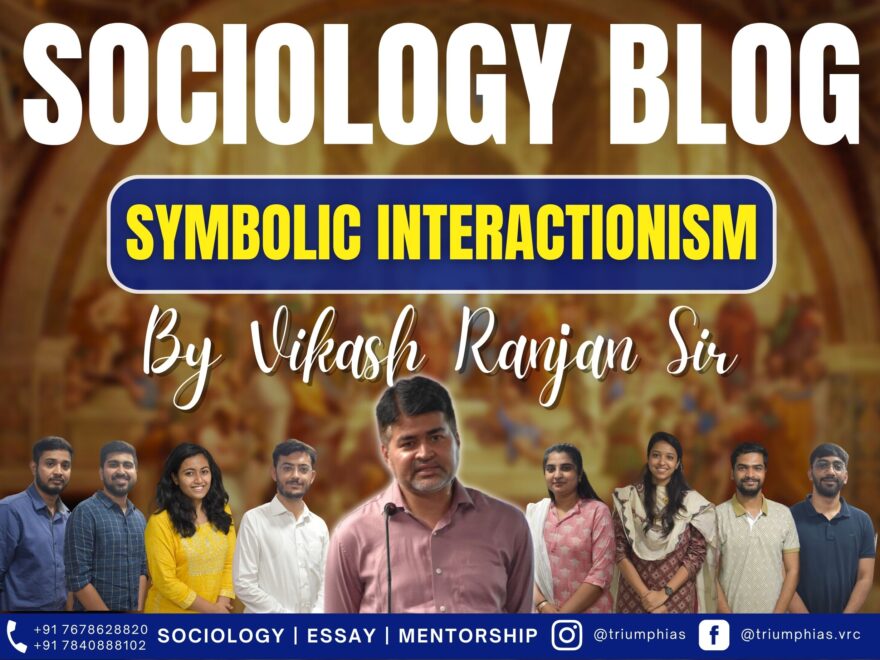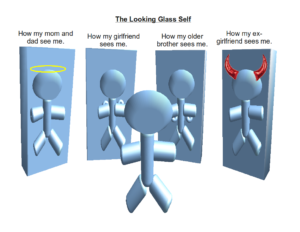Symbolic Interactionism Sociology
(Relevant for Sociology Optional for Civil Services Examination)
Introduction
Symbolic Interactionism Sociology differs from functionalism, Marxism and most feminist theories in that it focuses on small-scale interaction rather than society as a whole. It usually rejects the notion of a social system. As a result it does not regard human action as a response or reaction to the system.
Interactionists believe that is possible to analyze society systematically and that it is possible to improve society.
However, improvements have to be made on a smaller scale and in a more piecemeal way than implied by macro or system theories.
Symbolic Interactionism Sociology
In particular, interactionists believe that individuals possess a ‘self-concept’, or image of themselves, that is built up, reinforced or modified in the process of interaction with other members of society. Thus human beings have an image of what sort of person they are, and they will tend to act in accordance with that image. They might see themselves as caring or tough, honest or dishonest, weak or strong, and their behavior reflects this sense of their own character.
Symbols in Everyday Life. Without symbols, our social life would be no more sophisticated than that of animals. For example, without symbols we would have no aunts or uncles, employers or teachers—or even brothers and sisters. This sounds strange, but it is symbols that define our relationships. There would still be reproduction, of course, but no symbols to tell us how we are related to whom. We would not know to whom we owe respect and obligations, or from whom we can expect privileges—the essence of human relationships.
- Look at it like this: If you think of someone as your aunt or uncle, you behave one way, but if you think of that person as a boyfriend or girlfriend, you behave quite differently. It is the symbol that tells you how you are related to others—and how you should act toward them.
- Let’s make this a little less abstract. Consider this example:
“ Suppose that you have fallen head over heels in love. Finally, after what seems forever, it is the night before your wedding. As you are contemplating tomorrow’s bliss, your mother comes to you in tears. Sobbing, she tells you that she had a child before she married your father, a child that she gave up for adoption. Breaking down, she says that she has just discovered that the person you are going to marry is this child. ”
You can see how the symbol will change overnight—and your behavior, too! It is not only relationships that depend on symbols to exist, but even society itself. Without symbols, we could not coordinate our actions with those of others. We could not make plans for a future day, time, and place. Unable to specify times, materials, sizes, or goals, we could not build bridges and highways. Without symbols, there would be no movies or musical instruments. We would have no hospitals, no government, no religion.
- Meaningful Symbols: G.H. Mead
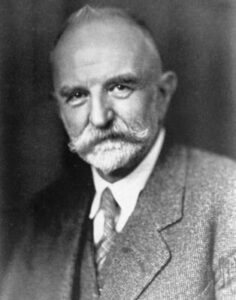 Meaningful symbols makes society possible. According to him the ongoing process of Symbolic Interactionism Sociology and creation definition, recreation, redefinition of meaningful symbols make society possible. The meaningful like MOTHER, FATHER, LIGHTS, and GREEN etc. According to G.H. Mead represents something other than themselves and are critical in understanding social reality.
Meaningful symbols makes society possible. According to him the ongoing process of Symbolic Interactionism Sociology and creation definition, recreation, redefinition of meaningful symbols make society possible. The meaningful like MOTHER, FATHER, LIGHTS, and GREEN etc. According to G.H. Mead represents something other than themselves and are critical in understanding social reality.
The language is the most powerful symbol that humans have created, because it allows us to communicate through shared meanings of symbols.
- Definition of Situations: Thomas & Thomas
Thomas & Thomas: Broadened the scope as symbolic interaction. He added new idea according to Thomas & Thomas, It is not only meaning to symbols but meaning to the situation also influence the social behavior. The definition of situation or individual’s meaning of situation determines the behavior.
Definition of the situation refers to the idea that “if [people] define situations as real, they are real in their consequences” (Thomas and Thomas, 1928:572). Simply put, people define social reality through a process of give and- take interaction. Once a definition is established, it shapes all further interactions. For example, have you ever decided that you were “in love” with someone? If so, how did that change the way you interacted with that person? Conversely, what happens when a married couple decides they are no longer in love? If they define their marriage as meaningless or decide they have irreconcilable differences, how does that affect their relationship? Is a marriage likely to survive if both partners have defined it as “over”?
- Looking Glass Self – C.H. Cooley
According to C.H. Colley – Society is like a mirror. Individual’s behavior is determined by the meanings attached to other’s perception about the individual.
Under the transgender persons (protection of rights) Act 2019 Trans persons can apply for an ID card based on their self-perceived identity. In Context.
The looking-glass self refers to the idea that an individual’s self-concept is largely a reflection of how he or she is perceived by other members of society (Cooley, [1902] 1922). Society is used as a mirror to reflect a feeling of selfpride, self-doubt, self-worth, or self-loathing. These important elements of symbolic interactionism contribute to socialization and the process of becoming human as we establish our personal and social identities.
- Dramaturgical Analysis:- GOFFMAN
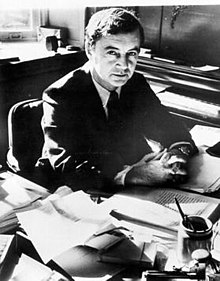
In drama, the role of every individual is fixed and meanings are attached. And individuals are not only aware about his/her own role, but other’s also similarly according to GOFFMAN society is a drama stage, where different individual assign meaning to not only his/her own role, but attaches/understands meaning to other’s roles also. “Society becomes possible with meaningful role sets”
Eg- In family – son and father
Son – understands his role and role of father.
It’s not only definition to symbols or situations but meaning to role assigned also influence behavior of individual. In performance of roles the individuals have consciousness about their role.
- The Labelling Approach: Howard Becker

Individual behavior is influenced by social label certain behavior individuals, groups are labelled by the society and such labels become part of social indemnity and deterring other’s attitude towards the behavior individual and groups and the responses of individuals and groups towards the others.
Another theoretical viewpoint within symbolic interactionism is the labeling approach, which contends that people attach various labels to certain behaviors, individuals, and groups that become part of their social identity and shape others’ attitudes about and responses to them. For example, in Outsiders, Howard Becker (1963) explored the fascinating world of jazz musicians and how their non-traditional music, penchant for marijuana, and open racial integration during the 1950s led mainstream Americans to label them “deviant.” The influence of the Chicago School and symbolic interactionism waned in the late 1950s, when a faction of sociologists argued that its approach was too dependent on ethnographic studies, personal observations, interviews, and subjective interpretations. Insisting that sociology must be more scientific, or at least, as Comte had envisioned, more positivistic, this group believed that sociology should rely more heavily on quantifiable data, facts, figures, and statistics. This led to the development of the Iowa School of symbolic interaction and also fueled a revival of structural functionalism.
Critical Analysis of Symbolic Interactionism Sociology
- Symbolic Interactionism Sociology criticized for ignoring social and economic factors in explanation of human behavior. Symbolic interaction seems to explaining human behavior in vacuum. Critics question from where does the meanings emanates?
- According to critics (structural functionalist, Marxist), Symbolic Interactionist over emphasized face to face interaction, small level interaction and ignored larger social structure and social systems (micro v/s macro)
- Skidmore – Symbolic Interactionism Sociology largely failed to explain why people consistently choose to behave in a certain way instead of all possible ways available to him/her. This means that behavior of individuals constrained by outside factor (social structure, institutions, values, norms etc.)
- According to C.W. Mills in personality market, the personality or symbol’s meaning can’t be used to interpret the reality.

To master these intricacies and fare well in the Sociology Optional Syllabus, aspiring sociologists might benefit from guidance by the Best Sociology Optional Teacher and participation in the Best Sociology Optional Coaching. These avenues provide comprehensive assistance, ensuring a solid understanding of sociology’s diverse methodologies and techniques.
META TAGS: Symbolic Interactionism Sociology, Symbolic interaction, meaningful symbols, social interaction, human behavior, language, dramaturgical analysis, labeling approach, sociological theories, critical analysis, Best Sociology Optional Coaching, Sociology Optional Syllabus, Symbolic Interactionism Sociology, Symbolic Interactionism Sociology, Symbolic Interactionism Sociology, Symbolic Interactionism Sociology, Symbolic Interactionism Sociology, Symbolic Interactionism Sociology, Symbolic Interactionism Sociology, Symbolic Interactionism Sociology, Symbolic Interactionism Sociology, Symbolic Interactionism Sociology, Symbolic Interactionism Sociology, Symbolic Interactionism Sociology
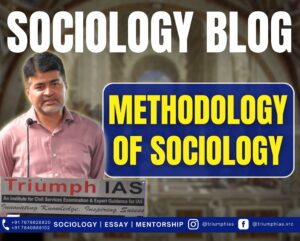 |
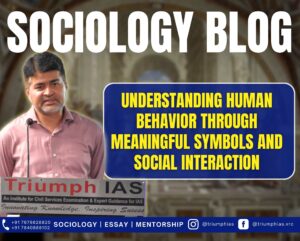 |
Explore Sociology Optional Syllabus
Paper-1
FUNDAMENTALS OF SOCIOLOGY
- Sociology – The Discipline
- Sociology as Science:
- Research Methods and Analysis:
- Sociological Thinkers:
- Karl Marx- Historical materialism, mode of production, alienation, class struggle.
- Emile Durkheim- Division of labour, social fact, suicide, religion and society.
- Max Weber- Social action, ideal types, authority, bureaucracy, protestant ethic and the spirit of capitalism.
- Talcott Parsons- Social system, pattern variables.
- Robert K. Merton- Latent and manifest functions, conformity and deviance, reference groups.
- Mead – Self and identity.
- Stratification and Mobility:
- Concepts- equality, inequality, hierarchy, exclusion, poverty and deprivation.
- Theories of social stratification- Structural functionalist theory, Marxist theory, Weberian theory.
- Dimensions – Social stratification of class, status groups, gender, ethnicity and race.
- Social mobility- open and closed systems, types of mobility, sources and causes of mobility.
- Works andEconomic Life:
- Social organization of work in different types of society- slave society, feudal society, industrial /capitalist society
- Formal and informal organization of work.
- Labour and society.
- Politics and Society:
- Sociological theories of power.
- Power elite, bureaucracy, pressure groups, and political parties.
- Nation, state, citizenship, democracy, civil society, ideology.
- Protest, agitation, social movements, collective action, revolution.
- Religion and Society:
- Sociological theories of religion.
- Types of religious practices: animism, monism, pluralism, sects, cults.
- Religion in modern society: religion and science, secularization, religious revivalism, fundamentalism.
- Systems of Kinship:
- Family, household, marriage.
- Types and forms of family.
- Lineage and descent.
- Patriarchy and sexual division of labour.
- Contemporary trends.
- Social Change in Modern Society:
- Sociological theories of social change.
- Development and dependency.
- Agents of social change.
- Education and social change.
- Science, technology and social change.
Paper-2
INDIAN SOCIETY: STRUCTURE AND CHANGE
INTRODUCING INDIAN SOCIETY
- Perspectives on the study of Indian society:
- Indology (GS. Ghurye).
- Structural functionalism (M N Srinivas).
- Marxist sociology (A R Desai).
- Impact of colonial rule on Indian society :
- Social background of Indian nationalism.
- Modernization of Indian tradition.
- Protests and movements during the colonial period.
- Social reforms.
SOCIAL STRUCTURE
- Perspectives on the study of Indian society:
- The idea of Indian village and village studies.
- Agrarian social structure – evolution of land tenure system, land reforms.
- Caste System:
- Perspectives on the study of caste systems: GS Ghurye, M N Srinivas, Louis Dumont, Andre Beteille.
- Features of caste system.
- Untouchability – forms and perspectives.
- Tribal communities in India
- Definitional problems.
- Geographical spread.
- Colonial policies and tribes.
- Issues of integration and autonomy.
- Social Classes in India:
-
- Agrarian class structure.
-
-
- Industrial class structure.
- Middle classes in India.
-
- Systems of Kinship in India:
- Lineage and descent in India.
- Types of kinship systems.
- Family and marriage in India.
- Household dimensions of the family.
- Patriarchy, entitlements and sexual division of labour
- Religion and Society:
- Religious communities in India.
- Problems of religious minorities.
- Patriarchy, entitlements and sexual division of labour
SOCIAL CHANGES IN INDIA
- Visions of Social Change in India:
- Idea of development planning and mixed economy
- Constitution, law and social change.
- Education and social change.
- Rural and Agrarian transformation in India:
- Programmes of rural development, Community Development Programme, cooperatives,poverty alleviation schemes
- Green revolution and social change.
- Changing modes of production in Indian agriculture.
- Problems of rural labour, bondage, migration.
3. Industrialization and Urbanisation in India:
-
- Evolution of modern industry in India.
- Growth of urban settlements in India.
- Working class: structure, growth, class mobilization.
- Informal sector, child labour
- Slums and deprivation in urban areas.
4. Politics and Society:
-
- Nation, democracy and citizenship.
- Political parties, pressure groups , social and political elite
- Regionalism and decentralization of power.
- Secularization
5. Social Movements in Modern India:
-
- Peasants and farmers movements.
- Women’s movement.
- Backward classes & Dalit movement.
- Environmental movements.
- Ethnicity and Identity movements.
6. Population Dynamics:
-
- Population size, growth, composition and distribution
- Components of population growth: birth, death, migration.
- Population policy and family planning.
- Emerging issues: ageing, sex ratios, child and infant mortality, reproductive health.
7. Challenges of Social Transformation:
-
- Crisis of development: displacement, environmental problems and sustainability
- Poverty, deprivation and inequalities.
- Violence against women.
- Caste conflicts.
- Ethnic conflicts, communalism, religious revivalism.
- Illiteracy and disparities in education.
Why Vikash Ranjan’s Classes for Sociology?
Proper guidance and assistance are required to learn the skill of interlinking current happenings with the conventional topics. VIKASH RANJAN SIR at TRIUMPH IAS guides students according to the Recent Trends of UPSC, making him the Best Sociology Teacher for Sociology Optional UPSC.
At Triumph IAS, the Best Sociology Optional Coaching platform, we not only provide the best study material and applied classes for Sociology for IAS but also conduct regular assignments and class tests to assess candidates’ writing skills and understanding of the subject.
Choose The Best Sociology Optional Teacher for IAS Preparation?
At the beginning of the journey for Civil Services Examination preparation, many students face a pivotal decision – selecting their optional subject. Questions such as “which optional subject is the best?” and “which optional subject is the most scoring?” frequently come to mind. Choosing the right optional subject, like choosing the best sociology optional teacher, is a subjective yet vital step that requires a thoughtful decision based on facts. A misstep in this crucial decision can indeed prove disastrous.
Ever since the exam pattern was revamped in 2013, the UPSC has eliminated the need for a second optional subject. Now, candidates have to choose only one optional subject for the UPSC Mains, which has two papers of 250 marks each. One of the compelling choices for many has been the sociology optional. However, it’s strongly advised to decide on your optional subject for mains well ahead of time to get sufficient time to complete the syllabus. After all, most students score similarly in General Studies Papers; it’s the score in the optional subject & essay that contributes significantly to the final selection.
“A sound strategy does not rely solely on the popular
Opinion of toppers or famous YouTubers cum teachers.”
It requires understanding one’s ability, interest, and the relevance of the subject, not just for the exam but also for life in general. Hence, when selecting the best sociology teacher, one must consider the usefulness of sociology optional coaching in General Studies, Essay, and Personality Test.
The choice of the optional subject should be based on objective criteria, such as the nature, scope, and size of the syllabus, uniformity and stability in the question pattern, relevance of the syllabic content in daily life in society, and the availability of study material and guidance. For example, choosing the best sociology optional coaching can ensure access to top-quality study materials and experienced teachers. Always remember, the approach of the UPSC optional subject differs from your academic studies of subjects. Therefore, before settling for sociology optional, you need to analyze the syllabus, previous years’ pattern, subject requirements (be it ideal, visionary, numerical, conceptual theoretical), and your comfort level with the subject.
This decision marks a critical point in your UPSC – CSE journey, potentially determining your success in a career in IAS/Civil Services. Therefore, it’s crucial to choose wisely, whether it’s the optional subject or the best sociology optional teacher. Always base your decision on accurate facts, and never let your emotional biases guide your choices. After all, the search for the best sociology optional coaching is about finding the perfect fit for your unique academic needs and aspirations.
META TAGS: Methodology in Sociology,Methodology in Sociology,Methodology in Sociology,Methodology in Sociology
Follow us :
🔎 https://www.instagram.com/triumphias
🔎https://www.youtube.com/c/TriumphIAS
https://t.me/VikashRanjanSociology
Find More Blogs
|
Scope of the subject and comparison with other social sciences |
|||
|
|
|
|
Modernity and social changes in Europe |

